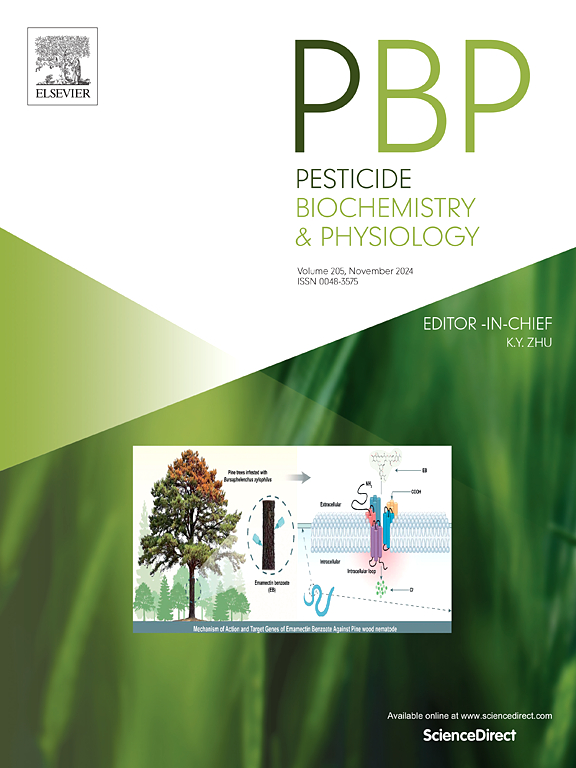An in-depth analysis of the effects of excessive acetochlor exposure on chicken liver health
IF 4.2
1区 农林科学
Q2 BIOCHEMISTRY & MOLECULAR BIOLOGY
引用次数: 0
Abstract
Acetochlor, a commonly used herbicide, poses significant risks to ecosystem and organism health through contamination of the food chain. Despite its widespread use, there is a lack of comprehensive studies on its toxicological effects on avian species. This study investigates the impact of environmental acetochlor exposure on chicken liver health using metabolomics analysis and histopathological techniques. Microscopic examination revealed autophagy-like structures and endoplasmic reticulum (ER) expansion, with significant effects observed at higher exposure levels. Biochemical analysis and metabolomics also demonstrated acetochlor-induced ferroptosis, highlighting disruptions in liver function. Further, in vitro studies revealed that acetochlor stimulates autophagy, which regulates ferroptosis via ferritin degradation, mediated through the ER-CaMKII pathway. These findings emphasize the importance of understanding the molecular mechanisms involved in acetochlor toxicity, particularly the role of the Ca2+/CaMKII pathway, ER stress, and autophagy in ferroptosis. The study contributes to a deeper understanding of how environmental contaminants affect avian species, providing critical insights for better herbicide risk assessment, pollution control, and sustainable agricultural practices.

求助全文
约1分钟内获得全文
求助全文
来源期刊
CiteScore
7.00
自引率
8.50%
发文量
238
审稿时长
4.2 months
期刊介绍:
Pesticide Biochemistry and Physiology publishes original scientific articles pertaining to the mode of action of plant protection agents such as insecticides, fungicides, herbicides, and similar compounds, including nonlethal pest control agents, biosynthesis of pheromones, hormones, and plant resistance agents. Manuscripts may include a biochemical, physiological, or molecular study for an understanding of comparative toxicology or selective toxicity of both target and nontarget organisms. Particular interest will be given to studies on the molecular biology of pest control, toxicology, and pesticide resistance.
Research Areas Emphasized Include the Biochemistry and Physiology of:
• Comparative toxicity
• Mode of action
• Pathophysiology
• Plant growth regulators
• Resistance
• Other effects of pesticides on both parasites and hosts.

 求助内容:
求助内容: 应助结果提醒方式:
应助结果提醒方式:


